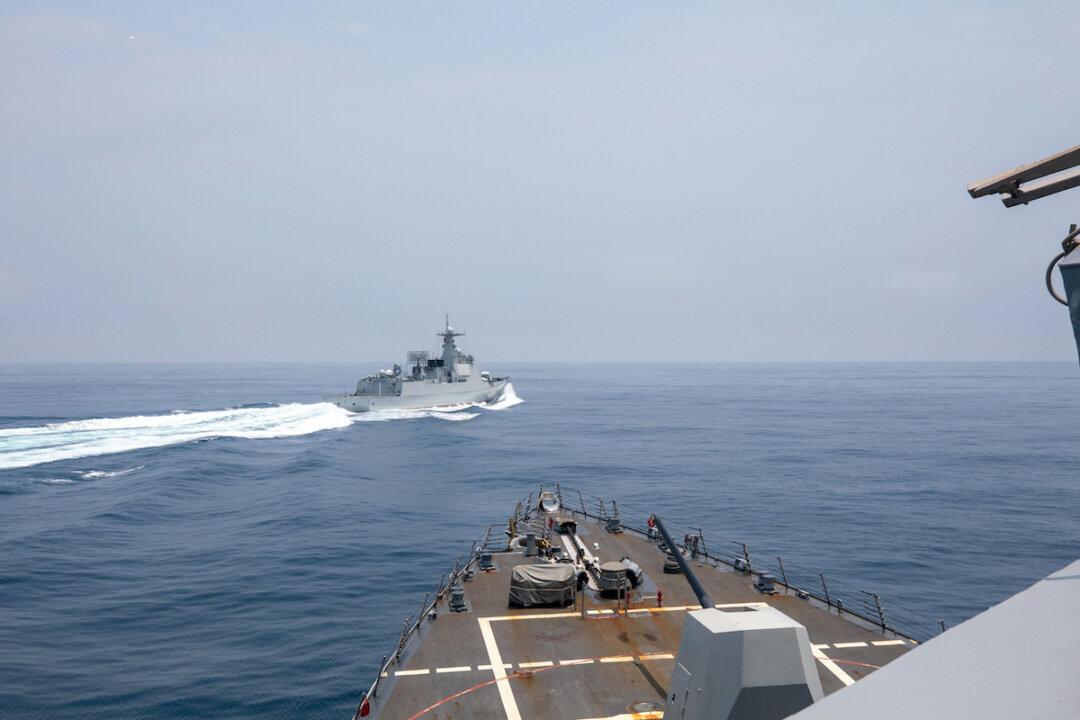A Chinese navy ship recently intercepted a U.S. Navy ship in the Taiwan Strait, escalating U.S.-China tensions over the Taiwan issue. One military expert said the move aligned with the Chinese regime’s goal to seize Taiwan and test the bottom line of U.S. defense of freedom of navigation.
On June 3, while the USS Chung-Hoon, a Burke-class guided-missile destroyer, and the Canadian frigate HMCS Montreal were passing through the Taiwan Strait, China’s Suzhou navy ship cut off the USS Chung-Hoon and forced it to change course. The two ships were within 150 yards of each other at their closest point and nearly collided.




